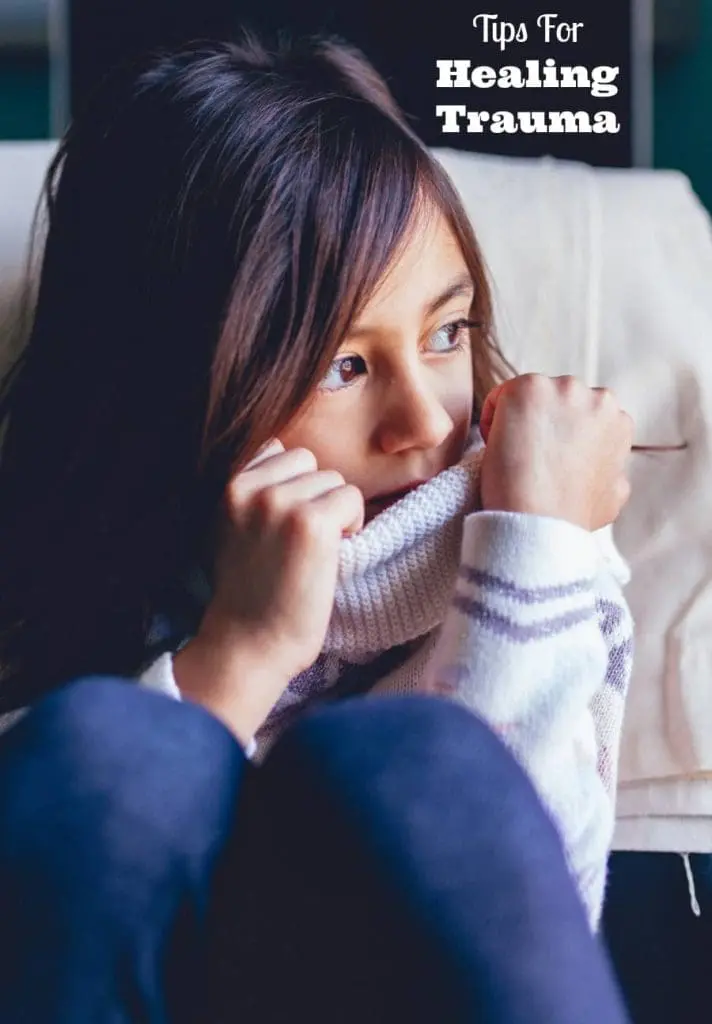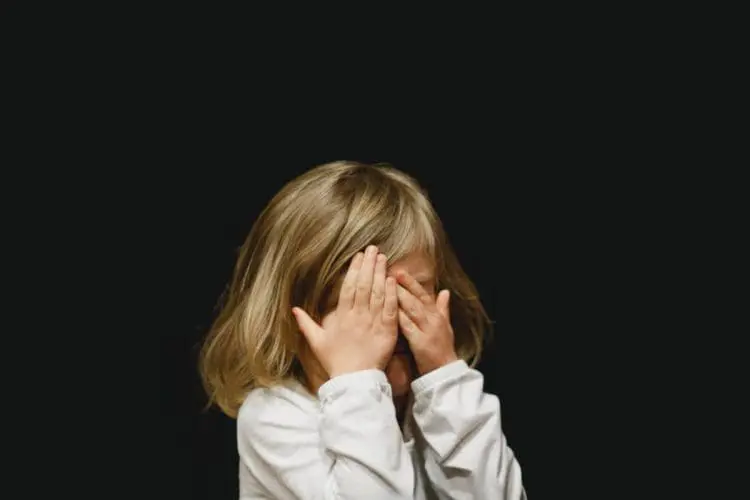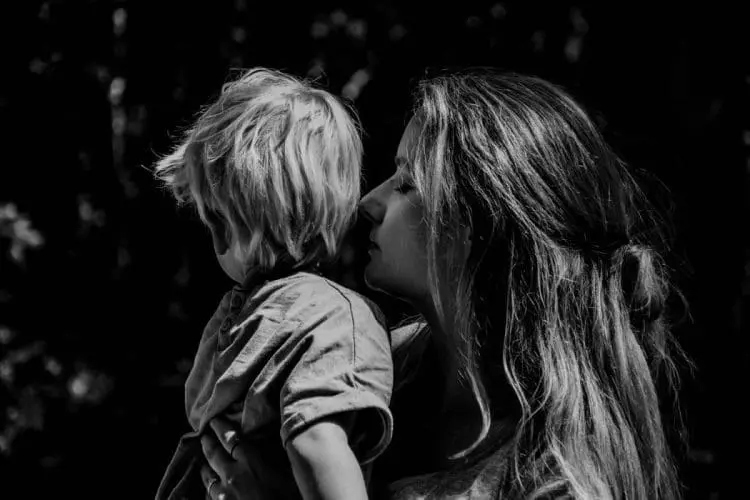Many of us have experienced some degree of trauma at some point in our lives. If you were subject to childhood trauma or a more recent traumatic experience, you are aware of just how challenging it can be to deal with. In fact, many trauma survivors suffer from post-traumatic stress disorder. This condition is the result of an overwhelming experience such as emotional abuse, sexual assault, or being caught in a natural disasters. Family trauma (whether it is severe neglect or from a nasty divorce) inflicts deep scars and profoundly impacts our emotional well-being and ability to function. That is why addressing the trauma and learning strategies that can help heal trauma are so important. I am thrilled to have mental health professional Duygu Balan share with us some important tips on healing trauma.
There is a powerful influence of family dynamics on mental health. Balan provides valuable insights and strategies to guide individuals in healing from the lasting wounds caused by childhood neglect and other adverse experiences. By exploring the formation of connections with caregivers she helps shed light on protective factors and evidence-based interventions. Trauma responses such as intrusive thoughts and emotional distress are very real trauma symptoms. That is why individuals benefit from trauma-healing exercises and writing prompts. Balan provides customizable soothing techniques and coping mechanisms for everyday life. She not only says it possible to heal, she shows how to forge a path toward a healthier, more resilient future.
Author and psychotherapist, Duygu Balan, LPCC, developed her expertise in intergenerational trauma while working as a clinical counselor in New York City treating patients on society’s margins. She is the co-author of Re-Write: A Trauma Workbook of Creative Writing and Recovery in Our New Normal which is available through my affiliate Amazon link. She is also a contributor to the best-selling medical textbook, Big Book of Emergency Department Psychiatry: A Guide to Patient Centered Operational Improvement. Born in Germany and raised in Istanbul, Duygu’s upbringing provides her with a fresh perspective on how to navigate tension between cultures; adverse childhood experiences; and attachment wounding through hope and resilience.

Healing from Family Trauma
by Duygu Balan, LPCC, author and psychotherapist specializing in intergenerational trauma
“The wound is the place where the light enters you.” -Rumi
Our desire for connection is an integral element to our survival. Traditionally, the family unit provides a source of security. Our sense of identity develops through our attachments and interactions with our loved ones. Relationship dynamics we experience in our early childhoods form the lens through which we view future relationships and create patterns in how we navigate social interactions.
Mild forms of disturbances in a child’s perception of safety, or the caregiver’s ability to provide comfort during a time of distress may lead to short term stress. Although uncomfortable, these likely won’t result in long lasting attachment injury as long as there is sufficient repair and warmth afterward.
What is family trauma?
Abrupt, unplanned, or prolonged separation of the caregiver and child might lead to emotional detachment of the child. After a crisis, both the parent’s as well as the child’s sense of security may be severely affected, resulting in difficulty receiving or reciprocating emotional signals.
Adverse childhood experiences (ACEs) include physical, sexual, and verbal abuse, and physical or emotional neglect. Exposure to family members with mental illness, including suicide attempts, and substance use issues are also risk factors. Other experiences include witnessing intimate partner violence, exposure to firearm related violence, witnessing a sibling being abused, and being bullied outside of the home are also forms of trauma. Parental loss or separation due to divorce, prison or deportation, and environmental factors such as having lived in a war zone, or an unsafe neighborhood are all potential causes of trauma.

The impact of trauma
We know that the extended and prolonged presence of stress from these adverse experiences can impact the development of the individual’s body, brain, and immune system. Studies show that these stressors can lead to adult onset of chronic diseases such as heart disease, diabetes, autoimmune disorders, and cancer.
The more stressors one experiences, the greater the impact. Two thirds of adults have experienced one or more types of adverse childhood experiences, and of those over 80% have experienced two or more. These traumatic stressors do not discriminate, they occur across demographics, races, and socio-economic statuses. No one is immune, as trauma is ubiquitous.
Longer term consequences of having individual and family level trauma include difficulty regulating emotions, as well as other cognitive and emotional difficulties including increased incidence of depression, anxiety, post traumatic stress disorder, self-injurious behaviors, suicide as well as alcohol and other drug use. Those with significant traumatic experiences also have a decreased life expectancy and die up to twenty years sooner than those with less or no traumatic experiences. On a societal level, these issues cause much of the burden of our chronic disease, mental illness and most violence turned outwards.
History of trauma also has an impact on school and work performance, as the behavioral and cognitive effects include decreased attendance, poor performance and interpersonal difficulties. The impact on the person’s brain and the damage caused on the nervous system creates problems in the person’s ability to navigate school or work environments. Attention, concentration, and the capacity to make decisions and gain new information are all impacted. Impulse control and self-regulation are compromised, and impact every system the individual encounters in their daily lives.
Prevention, recognition, and reducing the stigma
Since we know trauma is unfortunately extremely common, on the individual and family level, we must therefore exercise open mindedness, and work toward reducing the stigma of identifying and working toward recovery. Prevention, recognition, and treatment are critical elements to managing these types of after-effects of traumatic experiences.
In a school or workplace setting, having policies and procedures that specifically relate to strengthening the support to the individual, family and community are greatly beneficial.
Early identification, early engagement and early treatment with families and individuals typically yield the most benefit in terms of healthy recovery and building resilience.
Mindfulness and emotional intelligence, while innate, can also be learned. Healthy ways to interact, socialize and develop relationships, as well as healthy parenting can all be encouraged, modeled, and taught.
Social and community-based approaches include education and legislative measures, as well as addressing housing and food insecurity as well as income inequality. Improving general safety and wellbeing within communities, especially in impoverished and underserved areas, as well as reducing violence are all ways to mitigate and prevent these traumatic experiences from happening.
Throughout my experience working with familial trauma, I have come to appreciate the many protective factors within a family system that allows for resilience and strength. The main elements of protective factors revolve around communication patterns between family members, the disposition of individuals and their methods of relating with one another, as well as deliberate attempts to build guardrails around the family.

How To Heal From Childhood Trauma
External structural support such as community involvement is also essential. In addition to providing levels of resilience, these protective factors also reduce and prevent the worsening of symptoms of acute and post-traumatic stress disorders within the family system.
Having access to creative outlets of expression such as art, drama, painting, writing, music, movement, or dance are important to have available in the community. Access to religious services as well as extracurricular activities such as being on a sports team are also important. Programs that allow children to be together, to express themselves safely are valuable ways of allowing the child to re-write their stories.
Communication styles within families are influenced by the maturity of emotional expression as well as the amount of time within the family people have spent with one another. In the context of a traumatic event such as a disaster or pandemic, younger children may not realize the long-term effects of the experience. As children get older, their thinking shifts to realizing that real world actions have short- and longer-term consequences.
The maturity of emotional expression and having tools to identify and express what the child is going through depends on their developmental stage. Individuals with developmental disabilities will have communication styles and requirements unique to that individual, especially in the context of traumatic events. Younger children are more likely to share their experiences with their parents, while older adolescents and teens may prefer to connect with friends. It is important to be able to openly communicate information that is simple, and developmentally appropriate.
Another protective factor is a secure parenting style that sets the foundation of resilience and the ability to build secure attachment with others and develop healthy communication styles. Households that have adopted nurturing and responsive interactions foster supportive environments where consistency is the basis and appropriate boundaries and limits for the children are maintained. This allows for nurturance and a sense of safety. Caregivers who realize they must work toward incorporating environments conducive to mental health and wellbeing, model as well as teach the behavior and skills for the child to be able to manage difficult emotions during stressful times. These families have significantly better outcomes and have healthier coping mechanisms in the face of trauma. These communication and parenting styles also provide interconnectedness of the family unit which further reduces the harmful acute stressors and reduces the likelihood of developing posttraumatic stress disorders, depression, anxiety, and substance use.
Resilience And Trauma Healing Strategies
Among the skills I recommend when working with families experiencing traumatic stress include:
- Encourage the child to speak about their feelings. Foster an environment where family members come together when they feel sad or scared.
- Allow for time with a child to express their needs and wishes. Be patient, refrain from putting words in their mouth.
- Maintain appropriate boundaries and stick to previously agreed upon decisions. Consistency regarding routines, bedtimes, mealtimes should be held sacred as consistency enforces a sense of safety.
- Model emotion regulation. Work towards avoiding extreme levels of anger or irritability around the child.
- If needed, prepare a consequence rather than a punishment. Think about reinforcing behaviors that you want to be continued. Consequences should be real-world based, and as a direct result of the action or inaction. They should be clearly communicated and temporally close to the event of concern.
Trust within the family is critical, as are openness and the ability to feel comfortable within a safe space to express emotions. Families that have the skill to collaboratively solve problems and explain how they are working towards defining and creating these solutions are considered healthier. The ability to successfully resolve problems requires being able to see events and situations from multiple angles. This by nature needs a certain level of flexibility as well as open-mindedness.
Another exercise I encourage families to work on is creating their own family crest. I ask the family to think of their family values, accomplishments, morals, things they are proud of, and concepts that make them feel they belong to the family system. The illustrations can be simple line drawings, words or phrases that reflect the culture and philosophy of their family. As this is an exercise intended to be completed together, thinking through, communicating, and discovering with one another becomes part of the healing process.
Trauma treatments
The availability of external support systems in the event of a traumatic event is extremely valuable. Treatment can include individual therapy, as well as family counseling. Having appropriate support systems, including services in school, and other community safety net organizations, in times of traumatic events have been shown to decrease negative self-coping mechanisms such as substance use or other risk-taking behaviors.
Access to mental and physical health care is critical when indicated. In addition to the parenting styles, community resources and other factors discussed, receiving mental health care to process and unpack trauma is invaluable. Cognitive processing therapy or other professional help can make a world of difference.
Conclusion
Thanks again to Duygu Balan, LPCC for sharing her professional expertise on trauma healing. You can connect with her on Instagram, Facebook or LinkedIn: @duygubalan
Healing from childhood trauma is a deeply personal and ongoing journey that requires patience, self-compassion, and the right support. By acknowledging past wounds, seeking therapy or counseling, practicing self-care, and building healthy relationships, individuals can begin to process their experiences and move forward. Healing also involves reframing negative beliefs, setting boundaries, and allowing oneself to feel and express emotions in a safe environment. While the past cannot be changed, the way it shapes the future can be redefined. With time and effort, it is possible to find peace, resilience, and a renewed sense of self.
When it comes to psychological trauma, it is important to process trauma. Ignoring symptoms of trauma will not make them go away. Healing is a journey. Try some of the strategies above to help start the road to acknowledging family trauma and recovering mental health. With hope and work, resilience is possible.
Related Post:

Alan says
Really this information on emotional trauma is so helpful. It is reassuring to know that the damage can be reversed with the help of these strategies or in more serious cases, cognitive-behavioral therapy. Hope is key to trying.
Rehmatullah says
I want to express my gratitude for this incredibly insightful and compassionate post on healing trauma and the strategies for recovery. Trauma is a deeply personal and often painful experience, and your guidance offers a ray of hope for individuals seeking to embark on their healing journey.
Hazel Nora says
This blog post beautifully captures the effects of trauma and the profound impact it has on both the mind and body. Panic attacks and current physical symptoms highlight the deep connection between past experiences and present reactions.So insightful. Thanks for sharing this important information about trauma and that recovery is possible. Talk therapy and clinical work as essential tools for healing.
Ali Raza says
Thank you for sharing this insightful post! The strategies you’ve outlined for healing trauma are so important and I appreciate the emphasis on self-care and taking things at your own pace. Your tips for finding a support system and practicing mindfulness are especially helpful. I’m sure this post will be a valuable resource for anyone on their journey to recovery. Keep up the great work!
Henry Lee says
This is such a valuable resource. I appreciate how you’ve made the field of trauma both interesting and easy to follow. The examples and personal experience you’ve included really helped clarify key concepts. It is important to address and work through intrusive memories and negative experiences because they don’t just go away and get better left unattended.
Ethan Oliver says
This article provides a comprehensive and insightful exploration of trauma recovery, emphasizing the profound impact of childhood and family trauma on mental health. It highlights the importance of early intervention, supportive relationships, and evidence-based coping strategies. The inclusion of expert insights from Duygu Balan adds credibility and depth, offering valuable guidance on healing techniques, resilience-building, and the role of community support. The discussion on trauma prevention, emotional regulation, and secure attachment underscores the necessity of a holistic approach to recovery. Overall, this piece serves as a valuable resource for those seeking to understand and navigate the complexities of trauma healing.
Divya says
Healing from trauma has been a long journey for me, and i truly relate to this article . one thing that worked for me was journaling writing down my thoughts helped me process painful memories. I appreciate how you’ve made the field of trauma both interesting and easy to follow.
Megan says
This title is clear and informative, but consider making it more engaging by adding a sense of empowerment or hope. For example, ‘Healing Trauma: Powerful Strategies for Lasting Recovery’ or ‘Overcoming Trauma: Proven Strategies for Healing and Growth.’
The Spanish Group says
Your article on healing trauma is insightful, especially the role of family dynamics in mental health. The strategies shared are practical and helpful for recovery.
Diligence Certifications says
Healing trauma requires a multifaceted approach that addresses both the mind and body. Powerful strategies for recovery include therapy (such as EMDR or cognitive-behavioral therapy), mindfulness practices, physical activity, and strong social support. Self-compassion and patience are crucial, as healing is a gradual process. Everyone’s journey is unique, so finding the right combination of strategies that work for you is essential.